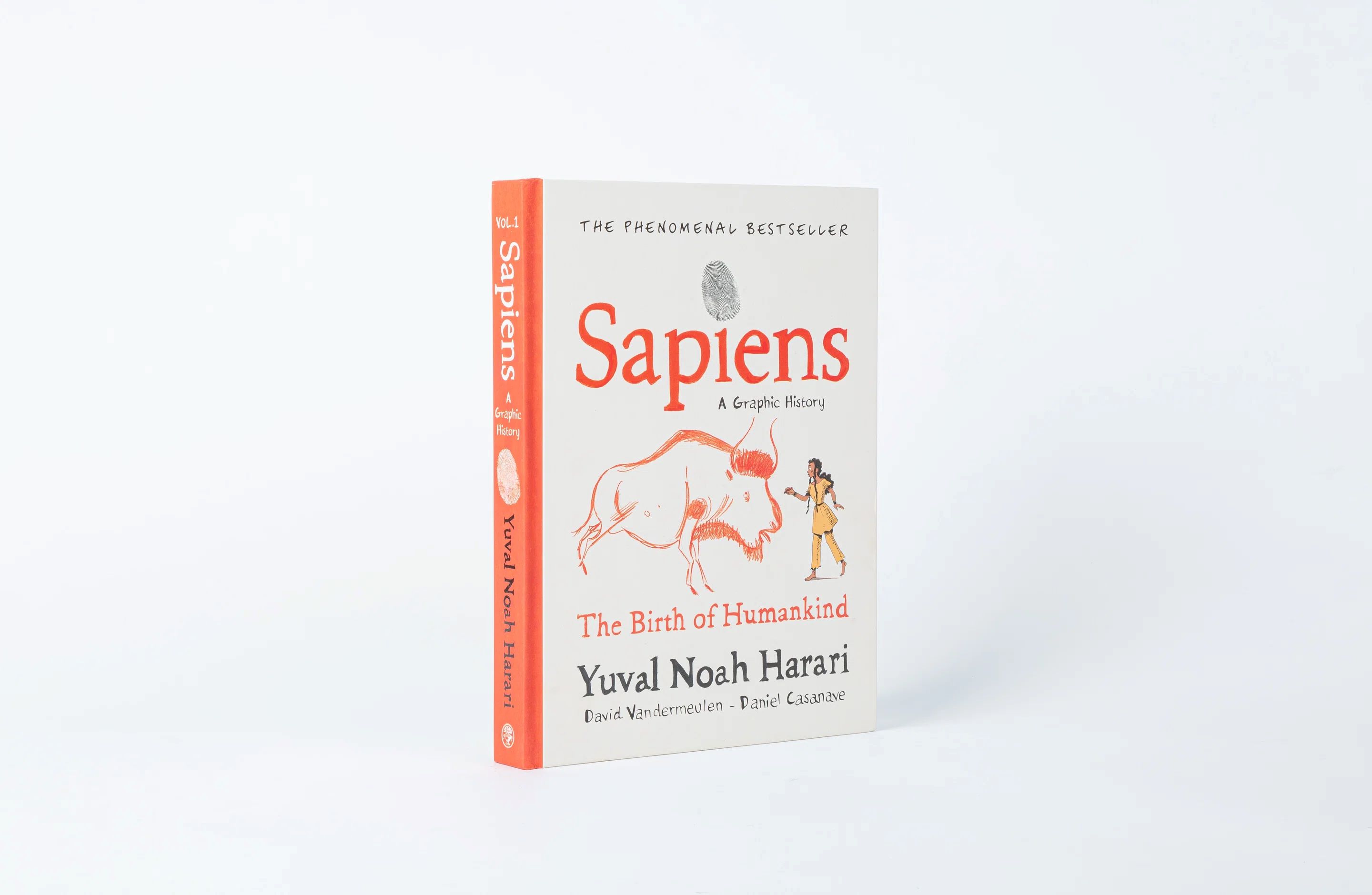
Yuval Noah Harari’s book Sapiens: A Brief History of Humankind has taken the world by storm, captivating readers with its unique perspective on the human story. In this fascinating book, Harari delves deep into the past to unravel our complex journey as a species, from our humble origins to becoming the dominant force on Earth.
Sapiens challenges our preconceived notions about human history, presenting a thought-provoking narrative that forces us to reevaluate our understanding of who we are and how we got here. Whether you’re a history buff or simply curious about the origins of our species, Sapiens offers a captivating exploration of our shared past.
In this article, we will delve into 12 unbelievable facts about Sapiens – Yuval Noah Harari, shedding light on some of the most intriguing concepts and ideas discussed in the book.
Key Takeaways:
- “Sapiens” by Yuval Noah Harari has sold over 20 million copies worldwide, exploring the history of humankind and challenging traditional beliefs. It’s a captivating journey through our past and a must-read for anyone curious about our place in the world.
- Yuval Noah Harari’s work has sparked intellectual discussions and critical thinking about the history and future of humanity. His engaging writing style and thought-provoking insights have had a profound impact on how we understand our place in the world.
The book “Sapiens: A Brief History of Humankind” has sold over 20 million copies worldwide.
Yuval Noah Harari’s groundbreaking book, “Sapiens: A Brief History of Humankind,” has captivated readers across the globe, selling over 20 million copies and counting. The book explores the history of our species, examining how Homo sapiens have evolved and reshaped the world around them.
Yuval Noah Harari is a renowned Israeli historian and professor.
Yuval Noah Harari is a highly respected figure in the field of history and academia. He holds a PhD in History from the University of Oxford and is currently a professor at the Hebrew University of Jerusalem. Harari’s unique perspective and ability to distill complex ideas into accessible narratives are what sets him apart as an exceptional writer.
Sapiens offers a thought-provoking analysis of the history of humankind.
In his book, Harari takes readers on a journey through time, delving into the origins of our species, the development of societies, and the profound impact humans have had on the planet. Sapiens challenges traditional narratives and encourages readers to question long-held beliefs about our place in the world.
Harari’s writing style is engaging and accessible.
One of the reasons for the immense popularity of “Sapiens” is Harari’s ability to present complex ideas in a clear and engaging manner. His writing style is both informative and accessible, making the book enjoyable to read for both scholars and casual readers alike.
“Sapiens” explores the Cognitive Revolution and the emergence of Homo sapiens as the dominant species.
Harari explores the pivotal moment in history when Homo sapiens developed the ability to think and communicate in symbolic language, leading to our dominance over other human species. This shift, known as the Cognitive Revolution, set the stage for the development of complex societies and the acceleration of human progress.
Harari also discusses the impact of the Agricultural Revolution on human societies.
The Agricultural Revolution marked a significant turning point in human history as people transitioned from nomadic hunter-gatherer lifestyles to settled agricultural communities. Harari examines the consequences of this shift, including the development of social hierarchies, the rise of organized religion, and the profound impact on the environment.
One of the key themes explored in “Sapiens” is the power of collective myths and imagined realities.
Harari argues that human societies are built upon shared myths and imagined realities, such as money, nation-states, and religions. These shared beliefs have allowed large-scale cooperation and have shaped the course of human history.
“Sapiens” addresses the ethical implications of advancements in science and technology.
Harari explores the ethical dilemmas posed by contemporary scientific advancements, such as genetic engineering, artificial intelligence, and biotechnology. He raises important questions about the potential impact of these technologies on human society and the future of our species.
Harari’s follow-up book, “Homo Deus: A Brief History of Tomorrow,” further explores the future of humanity.
In “Homo Deus,” Harari examines the potential trajectory of Homo sapiens, exploring how advancements in science and technology could reshape human existence in the coming decades and centuries. The book offers a thought-provoking glimpse into the possible paths our species might take.
“Sapiens” has been praised for its ability to inspire critical thinking and stimulate intellectual discussions.
Readers and scholars alike have lauded “Sapiens” for its ability to challenge conventional wisdom and encourage readers to think deeply about the history and future of humanity. The book has sparked countless intellectual debates and has become a valuable resource in various academic disciplines.
The popularity of “Sapiens” has led to numerous translations and adaptations.
Due to its widespread success, “Sapiens” has been translated into over 50 languages, allowing readers worldwide to engage with Harari’s profound insights. Additionally, the book has been adapted into graphic novels and audiobooks, further broadening its reach.
Harari’s work has had a profound impact on how we understand our place in the world.
Through his thought-provoking books and lectures, Harari has challenged conventional wisdom and sparked a deeper understanding of humanity’s past, present, and future. His work encourages us to question existing structures and consider new possibilities for the evolution of our species.
Conclusion
Yuval Noah Harari’s book, “Sapiens,” is a fascinating exploration of the history and evolution of our species. Through his insightful analysis, he presents readers with unbelievable facts that challenge our understanding of humanity’s past. From the Cognitive Revolution to the rise of agriculture and the emergence of empires, Harari provides a thought-provoking examination of how Homo sapiens have shaped the world.
By delving into the complexities of our species’ journey, Harari not only expands our knowledge but also encourages us to question our assumptions about the present and future. “Sapiens” invites readers to reflect on the impact of our actions and the potential paths that lie ahead. It serves as a reminder that while we are a remarkable species, we are also responsible for the world we inhabit. Through the lens of history, Harari presents a captivating narrative that underscores the importance of understanding our past to navigate the complexities of our future.
FAQs
Q: What is “Sapiens” about?
A: “Sapiens” by Yuval Noah Harari is a book that explores the history and evolution of Homo sapiens, covering significant milestones such as the Cognitive Revolution, the Agrarian Revolution, and the rise of empires. It examines how our species has shaped the world and challenges our perceptions of humanity’s past.
Q: Is “Sapiens” a factual book?
A: Yes, “Sapiens” is a non-fiction book that presents historical and anthropological research to provide insights into the development of Homo sapiens. The author, Yuval Noah Harari, combines scientific evidence with engaging storytelling to make complex concepts accessible to readers.
Q: Can “Sapiens” help me understand the world better?
A: Absolutely. “Sapiens” offers a deep exploration of the forces that have shaped human societies and continues to shape our world today. By understanding the origins of our species and the patterns of our past, readers can gain valuable insights into the complexities of contemporary society.
Q: Is “Sapiens” suitable for readers with no prior knowledge of history?
A: Yes, “Sapiens” is written in a way that is accessible to readers without a strong background in history. Yuval Noah Harari presents complex ideas in a clear and engaging manner, making it an excellent starting point for anyone interested in exploring the history of humanity.
Q: Does “Sapiens” present any thought-provoking ideas?
A: Certainly. Throughout “Sapiens,” Harari introduces numerous thought-provoking concepts, challenging conventional wisdom and inviting readers to critically examine their beliefs about humanity’s place in the world. It encourages a deeper understanding of our actions and their implications for the future.
If you're fascinated by the incredible insights from "Sapiens," don't miss our other captivating articles. Dive into the world of anthropologyanthropologyanthropology, where you'll uncover surprising facts that shed light on human cultures. Explore the depths of historyhistoryhistory, filled with astonishing events and turning points. And prepare to be amazed by the mind-blowing truths of human evolutionhuman evolution</human evolution>, which reveal the remarkable journey of our species. Keep reading to satisfy your curiosity and expand your understanding of the human experience.
Was this page helpful?
Our commitment to delivering trustworthy and engaging content is at the heart of what we do. Each fact on our site is contributed by real users like you, bringing a wealth of diverse insights and information. To ensure the highest standards of accuracy and reliability, our dedicated editors meticulously review each submission. This process guarantees that the facts we share are not only fascinating but also credible. Trust in our commitment to quality and authenticity as you explore and learn with us.


